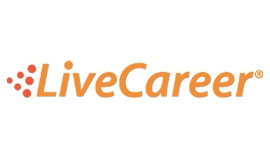Job Search Tools & Advice to Keep You On Point While Applying

With unemployment dipping below four percent and expected to stay there for the next few years, there couldn’t be a better time to look for a new job. But that doesn’t mean your job search won’t have challenges, or that you don’t need job search tools to help you find your next best fit.
For starters, many employers have high expectations. And with wages remaining close to stagnant, a high rate of workers who currently have a position – over 40 percent according to one recent survey – are planning to switch jobs in the coming year. So the record-low unemployment rate won’t mean there won’t be lots of competition for plume open positions.
In addition, employers are using many new strategies to make the hiring process more efficient and effective. That means that in addition to polishing your interview skills, you’ll need to become adept with new platforms and be ready to audition for your new role in different environments.
You may be asked to take an assessment test, give a presentation, or undertake a task similar to the kind you would face on the job, possibly even in a virtual reality setting. You’ll also need to be aware of how automation can determine who sees your resume.
Here are just some of the challenges you’re likely to face, along with advice on how to meet these obstacles.
- Social Media
Recruiters will be checking up on your social media presence and what they see could keep you out of the running. It isn’t always fair, but according to many recruiters, it is a reality.
The Solution? Edit your social media profile. Delete embarrassing images, errant comments, and consider increasing your privacy settings. Up your online game by creating a professional blog and contributing to blogs in your profession. Gain an understanding of how to build your personal brand via social media—doing so will help you market yourself to the companies and influencers in your particular industry. - Applicant Tracking Systems (ATS)
Nearly all large employers, and a growing number of mid-sized and small companies, are using automated applicant tracking systems (ATS) to assess applications. ATS are programmed to match keywords from job descriptions to words in your resume. If enough keywords match, your resume will be forwarded to a human recruiter; if not, you won’t be considered. Not only do ATS filter out applicants; they often rank resumes before a human recruiter sees them.
The solution? The best way to make it past an ATS and get your resume in human hands is to use as many keywords from the job description as are applicable to the skills and experience in your resume. Make sure to use the exact words in the ad and spell out all acronyms, as many ATS cannot recognize them. In addition, always provide a cover letter, even if it’s not required. Load your cover letter with the same keywords, since that can often up your number of hits and increase the likelihood that you will clear the resume filtering hurdle. Many job search tools can help you with this task. - Keeping Track of Everything
With all this customization, job hunting can become time intensive, inefficient, and chaotic. You’ll need to keep track of often-cumbersome processes that can include managing multiple documents, filling out extensive application questionnaires, and answering “knock-out” questions that can keep you out of the running.The Solution? There are a number of job search tools (many of them free) designed to help you keep track of your search and save time on redundant tasks. Here are just a few to check out:
-
- Good&Co
If you love taking online quizzes to gain personal insights, you might enjoy this job search tool and “self-discovery platform.” It provides its users with a variety of quizzes designed to help you learn about your professional strengths and ideal work style, and then presents you with jobs and companies that might be a good fit.
- Good&Co
-
- JibberJobber
This tool helps you keep track of all the jobs you apply for, as well as your personal network, and all of the companies you are interested in. It’s free, but for a premium it offers a library of career strategy videos.
- JibberJobber
-
- Jobscan
This job search tool helps you optimize your resume and online professional profiles by highlighting similar skills and experiences between your resume and the job ad, and prioritizing the most important. It also finds jobs you might be interested in based on keyword similarities between your resume and open positions.
- Jobscan
-
- LiveCareer Apply
LiveCareer Apply is a free tool that autofills online applications for you, expediting your job search so you don’t have to spend time filling in the same information over and over again (stuff like your name, email address, etc.). The tool is now available at the Google Chrome Store as well.
- LiveCareer Apply
-
- Simply Hired This tool allows you to sort your job searches by date, and makes it easy to save and share jobs. It also allows you to apply for some positions with just a swipe of your smart phone.
-
- Switch
This app links jobseekers to employers by allowing either to swipe on jobs or job applicants they like. When applicants swipe on a job they like their Switch profile is sent to the employer automatically.
- Switch
About the Author:
Since 2005, LiveCareer has been developing tools that have helped over 10 million users build stronger resumes, write persuasive cover letters, and develop better interview skills. Land the job you want faster using our resume examples and resume templates, writing guides, and free, easy-to-use resume builder.

